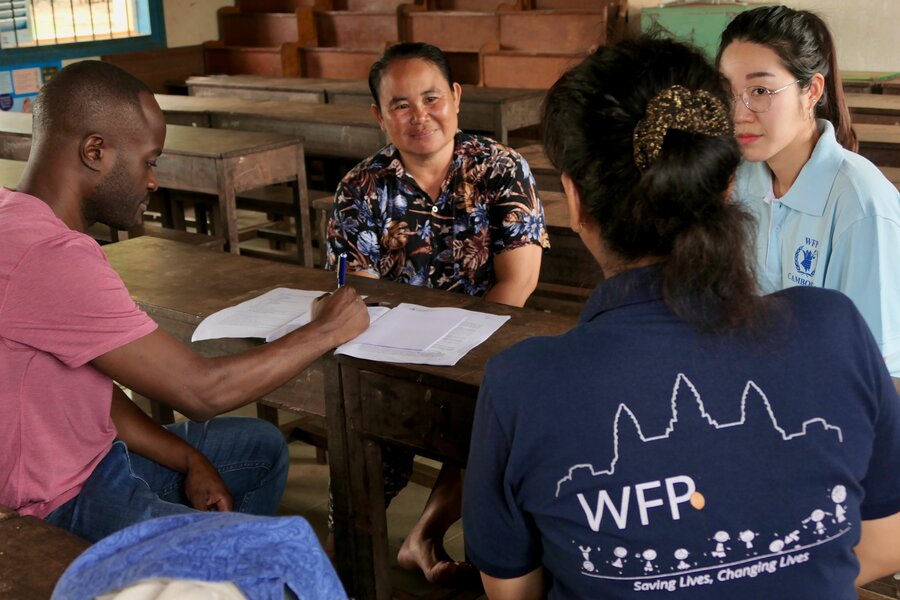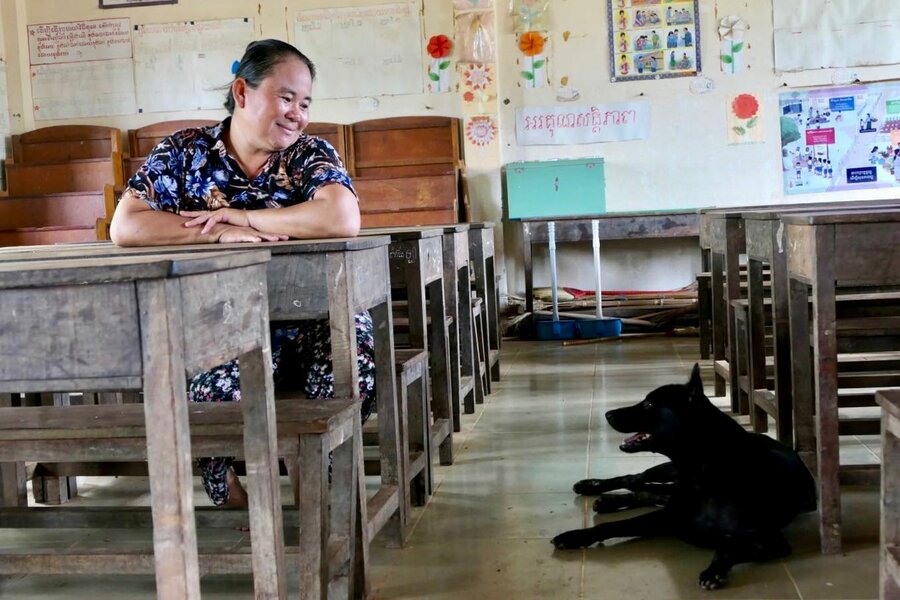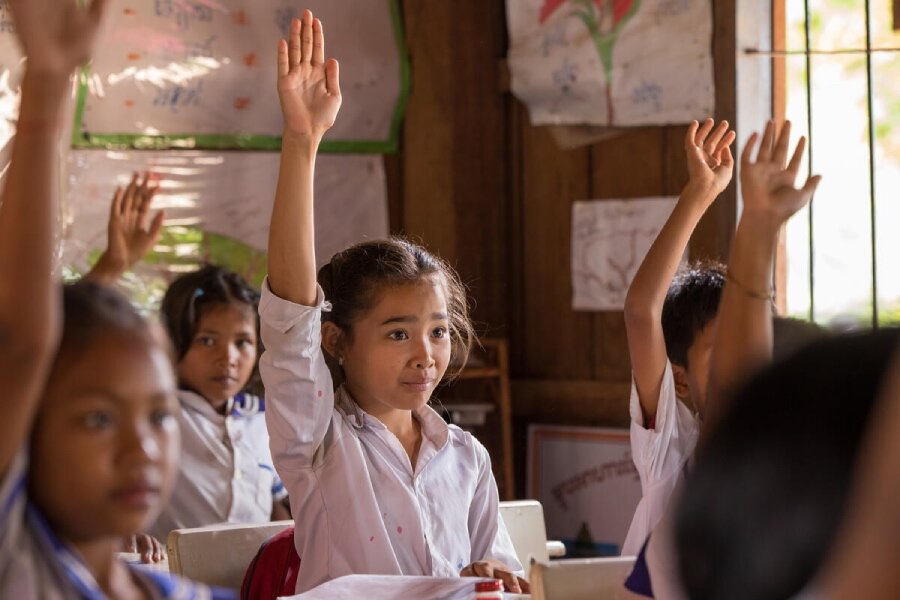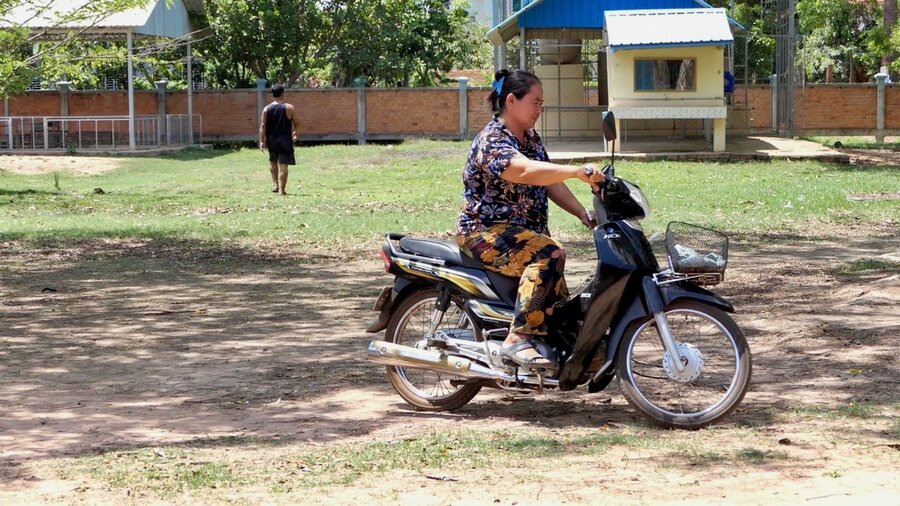
In the early 1990s, Seng missed classes and struggled to keep up with other children at her school in Cambodia's central Kampong Thom Province.
At break times she sold rice noodles, sugarcane juice and ice cream made by her family.
This took its toll on her performance as a student. She fell further and further behind her classmates.
Then she dropped out of school altogether and joined the family business full-time. To her frustration, she continued going to school - not to attend class, but instead to sell snacks at the gates.
But all was not lost. Over the months and years as she plied her wares, Seng saw many more female teachers passing through the school gates than when she was a pupil.
"I want to be like them," she thought. "But I failed my exams, how could I get a job like that?"
Thirty years later, Seng, too, is a teacher, who now promotes the importance of staying in school - including through free, nutritious and tasty school meals provided by the World Food Programme (WFP).
"I was too shy to say anything because I thought I was not capable," Seng recalls of her lost school years.
It's a lesson that's shaped her views today - along with the value of school meals as an incentive for parents to send their daughters to school, and to motivate youngsters to study.

"If people think that girls are meant to do kitchen work, that's not good," she says. "It's important to make sure children can go to school and later have jobs."
Three years after quitting school, and with the family business thriving, Seng convinced her parents it was time for her to return to school. They consented.
"My dream came true," she says.
While Cambodia's education system has improved in recent years, many children still need help to become academic achievers. Often, inadequate preparation for school, poor quality teaching and irregular attendance lead to students dropping out.
More than half of all school children leave full-time schooling, often because of the same pressures Seng faced.
Motivating girls

WFP works with the Government of Cambodia to promote gender equality, access to quality education, nutritious diets and social assistance for children in the country's pre-primary and primary schools.
"School meals contribute to Cambodia's human capital development, especially children from the poorest families," says Narith Chan , Secretary-General of The National Social Protection Council of Cambodia , the Government body responsible for coordinating and steering social protection strategies and policies.
"Having access to education will help them break the circle of poverty from generation to generation. "
WFP and the Government are working to gradually turn the school meals programme over to national authorities, and to roll out 'home-grown school feeding' - an initiative that sources produce from local farmers. The initiative not only ensures food quality and safety, but also encourages community ownership and supports local economies.
Today, Seng teaches at a school in the same Kamppong Thom region where she studied - where local volunteers help out in serving school meals to the establishment's 200 students.
Along with teaching, Seng also serves as a school-feeding committee member with a handful of other teachers and parents. The aim, she says, is "to make sure that children have enough food to eat and can focus on learning."
That's not the case elsewhere. Every day, millions of children worldwide go to school on an empty stomach, which can negatively affect their concentration and ability to learn.
Like Seng too, millions of children, particularly girls, do not attend school because their families need them to help in the fields or perform domestic chores.

Moreover, in conflict-affected countries, girls are two-and-a-half times more likely to be out of school than their peers in stable countries.
But in her community, at least, Seng is seeing how school meals and local commitment are bringing about change.
"No one expects girls to work in the kitchen now," Seng says. "We want to make sure they learn knowledge and skills to be able to work and not quit along the way. We keep motivating them."






